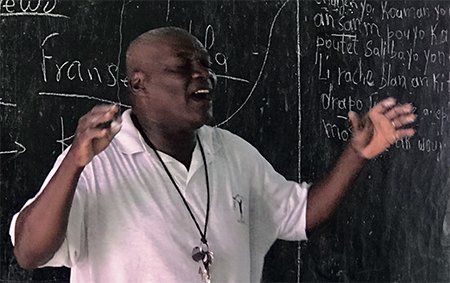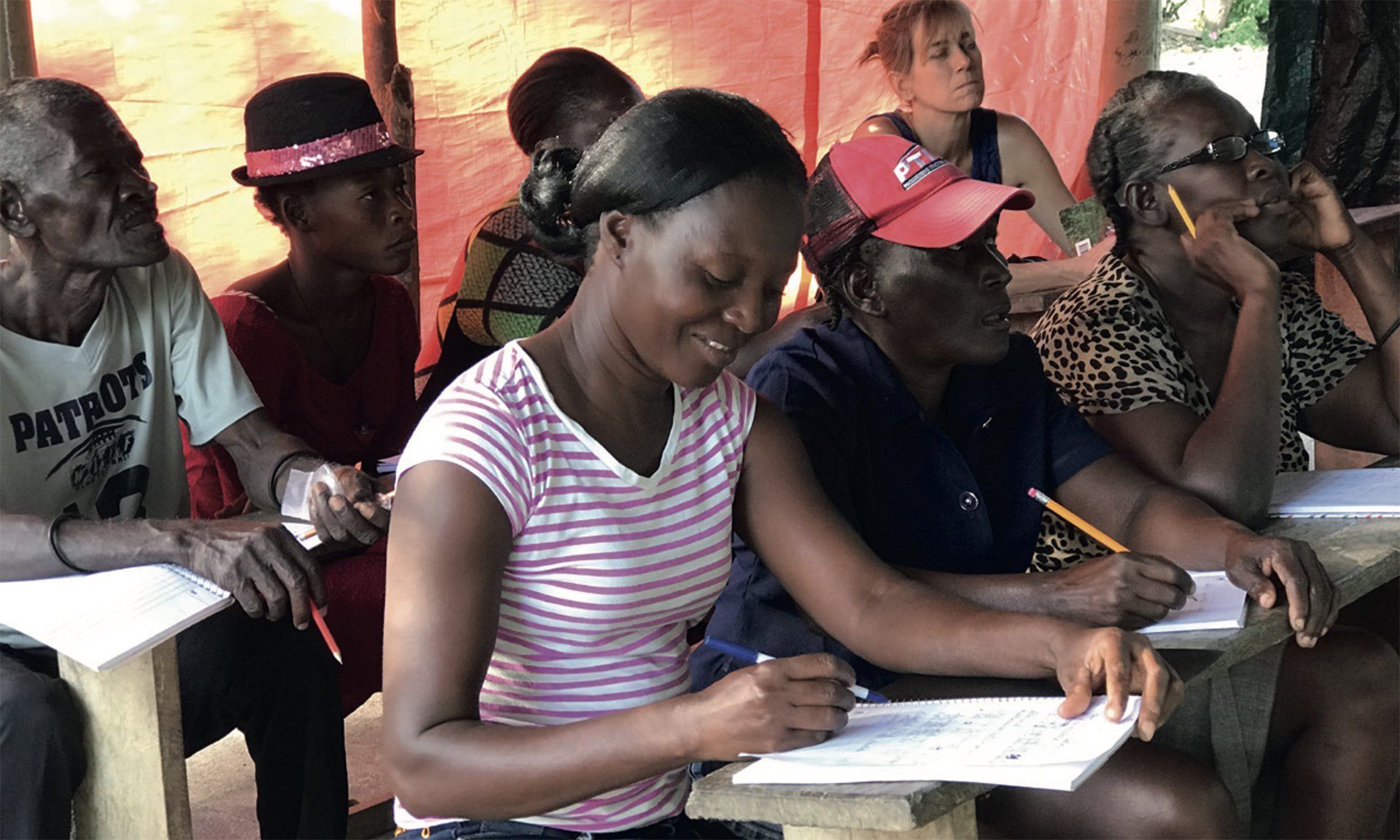Literacy And Development in Haiti

Chauncy Jacques, a human rights lawyer who became a community development organizer in adult education and in training literacy leaders, talks here about the importance of teaching literacy in the mother tongue together with consciousness raising.
Wherever you are in the world, I greet you. Thanks to The Steve Sinnott Foundation for connecting us through my brief article written in Haitian Kreyòl about creating literacy in Haiti.
I should introduce myself and explain my part in this project. I am from the community of Limonade in Northern Haiti, Chancy Jacques a human rights lawyer who became a community development organizer in adult education, credit groups for street vendors, and in training literacy leaders.
In any society, if the people cannot read and write and remain illiterate, that country will remain underdeveloped. This is why we need literacy programs in Haiti. (Alfabetizasyon in Kreyòl). In our context the literacy process means enabling those who have not been to school to begin reading, writing, and reflecting. When this happens, people gain a tool which enables them to develop within themselves, their families, their communities, and their country.
Some statistics have put the illiteracy rate in Haiti as high as 85%. There have been various tentative efforts to confront this situation, notably ONARAK and Misyon Alfa, but they have not been successful. Programs by The Alfa Foundation and the Catholic Church did not last. One cause of failure for these campaigns was that they were not embedded in consciousness-raising. This is why the high rate of illiteracy of our population remains at the root of Haiti’s many problems.
Enabling literacy for all Haitians is not only the work of the state, but is the role for everyone who is able. With that in mind, St Ann Parish in Limonade, supported by friends at St. Bartholomew Parish in Indiana, launched their own ALFA program, “Literacy is the Path to Development”.
ALFA includes communities in the parishes of Limonade and Bwadlans. The program is based on three pillars: reading & writing; mathematics; consciousness-raising.
Consciousness-raising, when done well, enables participants to discover that, of course, they already know a great deal! These are wise people, not ignorant or stupid. With the group monitor (not teacher) they begin to learn, and from them the monitor also begins to learn. They are good friends and it is by working together (tet ansanm) that the class becomes strong. Becoming more fully aware, participants discover that, universally, reading and writing is a key tool in life. They get excited about learning to read and write. They understand that they are behind in the journey, they want to hurry! They want to participate in community matters, in the church, and in national issues.
Once the work of consciousness-raising is done, and done well, reading and writing does not seem a mystery, for participants have discovered where they want to go. Then the work of the monitors becomes easier because everyone wants to come to class to learn quickly.
We use the “Goute Sel” text, a method which reinforces consciousness- raising. Each lesson has a subject for reflection and discovery. The reading and writing we share in unison so that no one is left behind.
Every Alfa participant is already calculating day to day. They always count whatever they have. In mathematics, it is only the understanding of numbers which is a problem. As they meet numbers in each lesson, the monitor helps them discover how these numbers express what they already know and practice. I believe it must be among the greatest possible experiences in life to enable a person to become literate, helping them leave hopelessness, find dignity and community. For this opportunity, Alfa monitors and I remain deeply grateful for the support of our friends in Indiana and the new partnership with the Steve Sinnott Foundation in London.

First published in Engage 23.




